7 Effective Ways to Control Your Anxiety, According to Therapists
Don't let your uneasiness upend your entire life. Follow these practices instead.
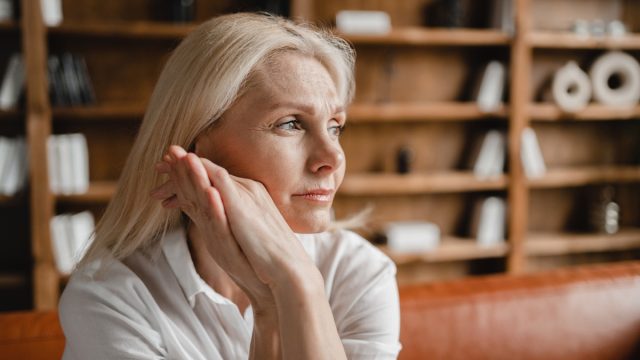
Anxiety can affect you in countless ways. Being in a constant state of worry can have adverse effects on your relationships, your work, and nearly every other aspect of your daily life. But you don't have to let this uneasiness upend your entire existence. Talking to therapists, we gathered insight on what practices you can incorporate into your routine to provide more relaxation. Read on for seven effective ways to control your anxiety.
RELATED: 5 Common Habits That Are Making You Anxious, Experts Say.
1
Begin doing diaphragmatic breathing.
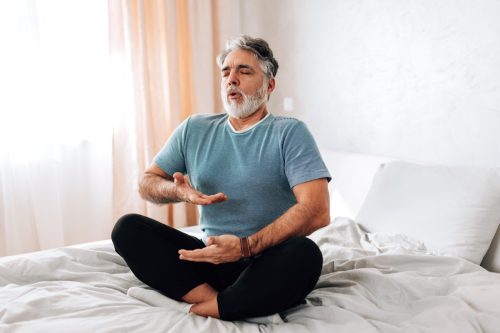
Using simple breathing techniques can help to alleviate anxiety. Aldrich Chan, PsyD, a licensed psychologist based in New York, advises people to practice diaphragmatic breathing.
"This technique involves consciously controlling your breath by taking slow, deep breaths into your belly—which can help activate the body's relaxation response and reduce anxiety," he says.
Diaphragmatic breathing can be utilized multiple times a day, "especially during moments of heightened anxiety or stress," according to Chan.
"Taking a few minutes to focus on deep, slow breaths can help calm the nervous system," he confirms.
2
Engage in regular exercise.

You can also work off your anxiety with some physical activity. Chan recommends activities like walking, jogging, yoga, or dancing—all of which he says can "reduce anxiety by releasing endorphins, improving mood, and promoting relaxation."
"Engaging in regular exercise for at least 30 minutes most days of the week is recommended for overall mental health and well-being," he shares. "However, even shorter bouts of physical activity can provide immediate relief from anxiety symptoms."
RELATED: Taking a "Smell Walk" Slashes Stress and Boosts Your Mood—Here's How to Do It.
3
Practice guided visualization.
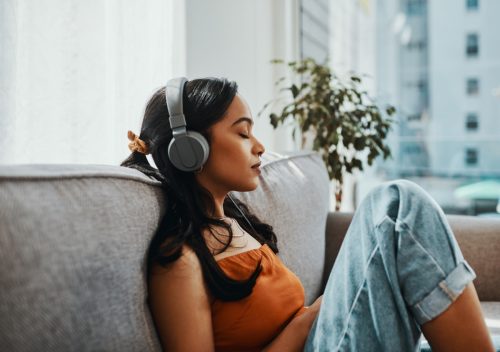
Imagery is important for relaxation efforts as well. Jennifer Kelman, LCSW, a family therapist working with JustAnswer, tells Best Life that she recommends practicing guided visualization when anxiety hits, or even as a prevention method.
"Guided visualization are audio recordings where you listen to a soothing voice walking you through certain places that are calming, such as a walk in the forest hearing the beautiful running water from a waterfall," she explains. "These visualizations are wonderfully calming and listening daily can help to keep anxiety at bay."
4
Make time for mindfulness.
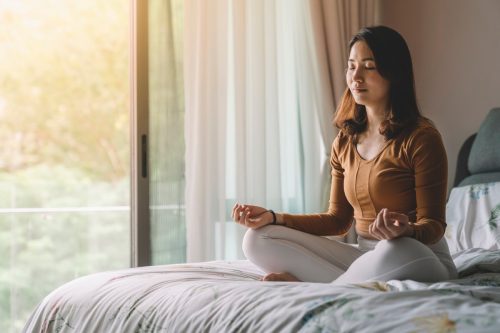
Another useful technique is using mindfulness and meditation to reduce anxiety, according to Chain.
"Mindfulness involves focusing on the present moment without judgment, while meditation involves training the mind to achieve a state of deep relaxation and heightened awareness," he says.
Chan recommends that those with anxiety try incorporating mindfulness and meditation into their daily routine to see the positive effects in action.
"Starting with just a few minutes a day and gradually increasing the duration can be helpful," he says. "Consistency is more important than the length of each session."
RELATED: 12 Best Foods to Ease Anxiety, Experts Say.
5
Identify your individual triggers.
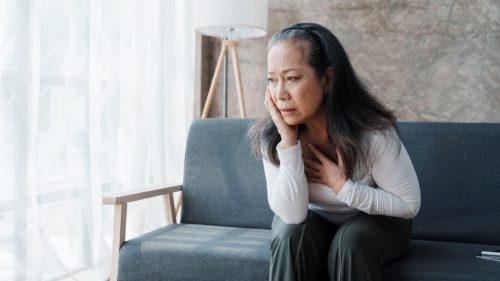
Many people with anxiety have particular things that set them off. That's why "identifying your triggers and finding ways to manage them can be helpful," according to Chan.
"This may involve avoiding certain situations or developing coping strategies to deal with specific triggers," he notes.
But identifying triggers has to be an "ongoing process," Chan reminds.
"It involves being aware of your triggers and implementing strategies to cope with them," he continues. "This can be done on a daily basis or as specific situations arise."
6
Create time for connection.
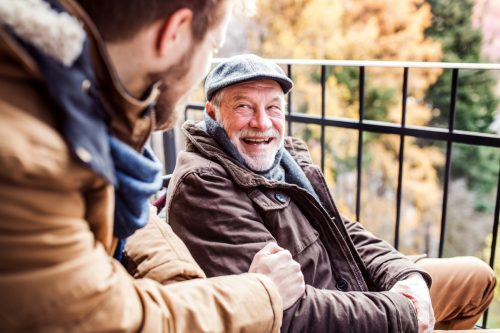
One of the worst things for anxiety is isolation, Kelman warns.
"We all need connection with others and when we have those healthy connections, we may feel uplifted and more connected which can help one to feel less anxious," she offers. "But when one is anxious, feelings of being alone without any support take over which adds to the anxious feelings."
That's why Kelman recommends creating time for connections with others.
"Find that good friend, take a walk, go out for a meal, and share your feelings and you just may find that you are breathing easier and feeling more calm," she suggests.
7
Seek professional support.
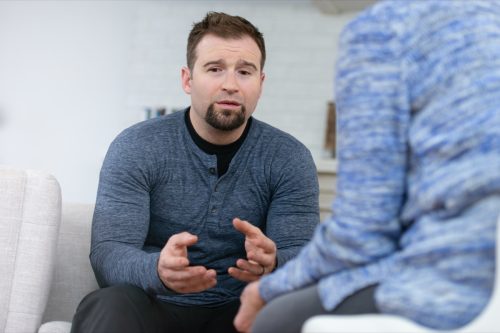
If connecting with a good friend isn't doing enough for you, you might need to look further.
"Get some professional support if the anxiety feels overwhelming and begins to interfere with your life," Kelman advises. "It may be time to get some hand-holding, and there is no shame in that. Therapy gives you a space to express how you feel and find other coping mechanisms to get you through difficult and anxious moments."
For more wellness advice delivered straight to your inbox, sign up for our daily newsletter.





















